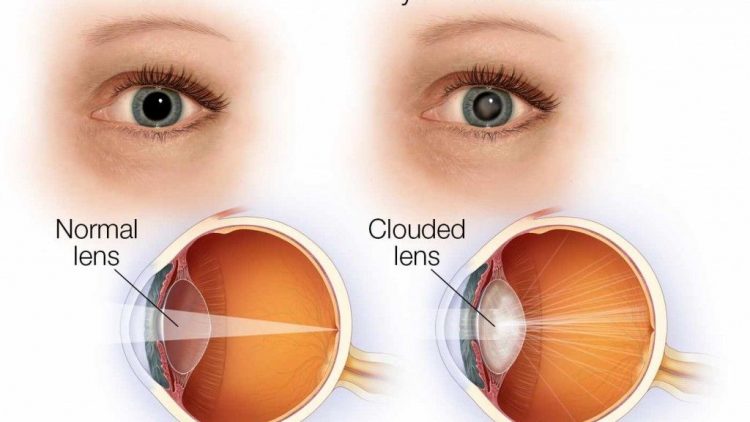CATARACTS – The World’s Leading Cause of Blindness
April 21, 2020 2022-02-28 3:36CATARACTS – The World’s Leading Cause of Blindness

CATARACTS – The World’s Leading Cause of Blindness
Cataract is the world’s leading cause of blindness, accounting for approximately 42 % of all cases of blindness in all nations. In the United States, more than 25 million Americans are estimated to have cataract, according to the report “Future of Vision: Forecasting the Prevalence and Costs of Vision Problems.” As the population in America continues to age, the number of cataract cases are projected to increase by 50 % to 38.5 million by 2032.
What is a Cataract?
A cataract is a cloudy area in the lens of your eye and are very common as you get older. The cataract stops light from properly passing through to the retina. Generally, it does not cause pain, redness or tears.
In fact, more than half of all Americans age 80 or older either have cataracts or have had surgery to get rid of cataracts.
At first, you may not notice that you have a cataract. But over time, cataracts can make your vision blurry, hazy, or less colorful. You may have trouble reading or doing other everyday activities.
Most cataracts are age-related — they happen because of normal changes in your eyes as you get older. But you can get cataracts for other reasons — for example, after an eye injury or after surgery for another eye problem (like glaucoma).
No matter what type of cataract you have, the treatment is always surgery.
What are the Symptoms?
You might not have any symptoms at first, when cataracts are mild. But as cataracts grow, they can cause changes in your vision. For example, you may notice that:
- Your vision is cloudy or blurry
- Colors look faded
- You can’t see well at night
- Lamps, sunlight, or headlights seem too bright
- You see a halo around lights
- You see double (this sometimes goes away as the cataract gets bigger)
- You have to change the prescription for your glasses often
These symptoms can be a sign of other eye problems, too. Be sure to talk to your eye doctor if you have any of these problems.
Over time, cataracts can lead to vision loss.
What are the Risk Factors?
- Older age
- Intense heat or long-term exposure to UV rays from the sun
- Certain diseases, such as diabetes
- Inflammation in the eye
- Hereditary influences
- Events before birth, such as German measles in the mother
- Long-term steroid use
- Eye injuries
- Eye diseases
- Smoking
How to Prevent Cataracts at any Age?
- Wear sunglasses with UVA/UVB protection and a hat with a brim to block the sun.
- Quit smoking and avoid excess alcohol consumption.
- Eat healthy. Eat plenty of fruits and vegetables — especially dark, leafy greens like spinach, kale, and collard greens. Eating foods high in antioxidants, such as beta-carotene, selenium, and vitamins C and E may also help ward off cataract development.
- Schedule yearly eye exams. Even if your vision is clear and healthy, routine visits allow your eye care professional to look for signs of cataracts, glaucoma, macular degeneration, and other vision disorders.
What is the Treatment for Cataracts?
Surgery is the only way to get rid of a cataract, but you may not need to get surgery right away. During cataract surgery, the doctor removes the clouded lens and replaces it with a new, artificial lens (also called an intraocular lens, or IOL). This surgery is very safe, and 9 out of 10 people who get it can see better afterwards.
Talk about your options with your doctor. Most people don’t need to rush into surgery. Waiting to have surgery usually won’t harm your eyes or make surgery more difficult later. Remember these tips:
- Tell your doctor if cataracts are getting in the way of your everyday activities
- See your doctor for regular check-ups
- Ask your doctor about the benefits and risks of cataract surgery
- Encourage family members to get checked for cataracts, since they can run in families.


